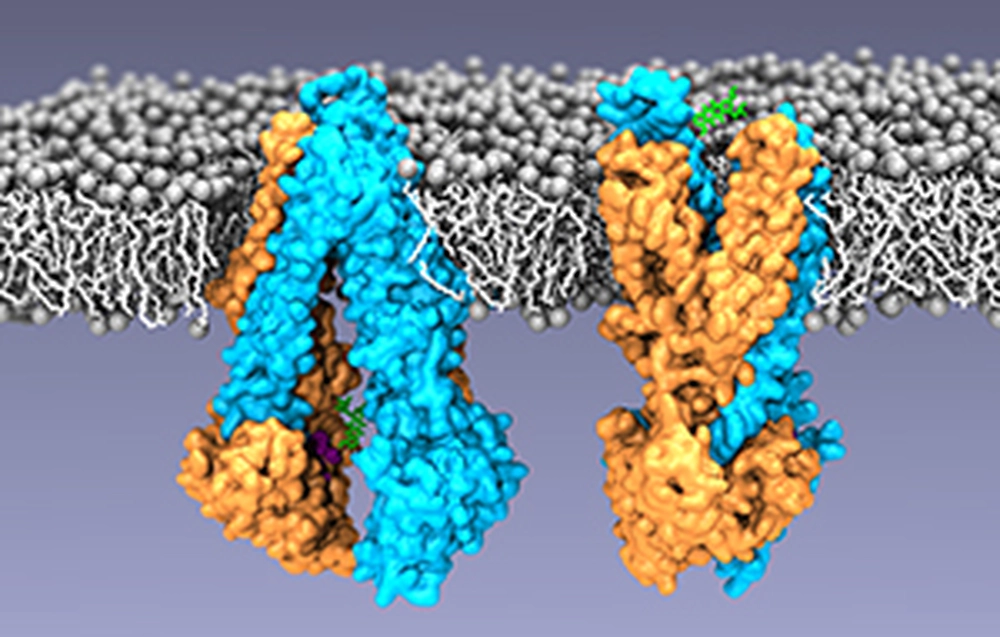
Large-scale simulations will develop a greater understanding of cellular membrane transporters, which could allow drug developers to design more targeted drugs for major pathophysiological conditions such as psychological disorders, cancer, and multi-drug resistance.
The U.S. Department of Energy Office of Science selected Professor Emad Tajkhorshid’s project for a 2015 Innovative and Novel Computational Impact on Theory and Experiment (INCITE) award. The award provides 96 million hours of massive supercomputing at a Leadership Computing Facility that focuses only on the most ambitious research projects with the potential for major breakthroughs.
Tajkhorshid’s lab has been exploring the precise way in which nutrient molecules enter cells and waste molecules leave cells. Proteins known as membrane transporters undergo structural changes to allow a unidirectional transfer of molecules, functioning as active pumps, but just how the pumps work is unknown.
“The Holy Grail of structural biology of membrane transporters is to describe this whole transition. Right now we only have the initial and final structures,” said Professor Tajkhorshid.
Understanding the transition could allow drug developers to design more targeted drugs for major pathophysiological conditions such as psychological disorders, cancer, and multi-drug resistance.
Tajkhorshid’s project, which has been developed and tested in his lab, will study the transition between structural intermediates of a number of transporters using a novel combination of several replica-based techniques coupling a massive array of all-atom molecular dynamics simulations, which are only possible with this type of supercomputing capacity.
The goal of the project is to develop an atomistic view of membrane transporter transitions and to understand the ways in which the membrane transporters use energy to function as one-way pumps.
The Department of Energy accords supercomputing hours to a small number of projects every year through the INCITE program, which aims to accelerate scientific discoveries and technological innovations to projects that address “grand challenges” in science and engineering. Tajkhorshid’s INCITE award is a two-year grant with the possibility of renewal, and uniquely, the award includes a staff liaison for scientific support.
Dr. Tajkhorshid is a professor of biochemistry, pharmacology, and biophysics and computational biology and an affiliate of the Beckman Institute. “This award is order of magnitude larger than anything else we have had in the past. I am very pleased (actually honored) that our project was selected,” he said.
To learn more about the fundamental questions involved in this research, watch Dancing Proteins: Cell Membrane Transporter Motion May Revolutionize Drug Therapies. Video courtesy of The Beckman Institute.